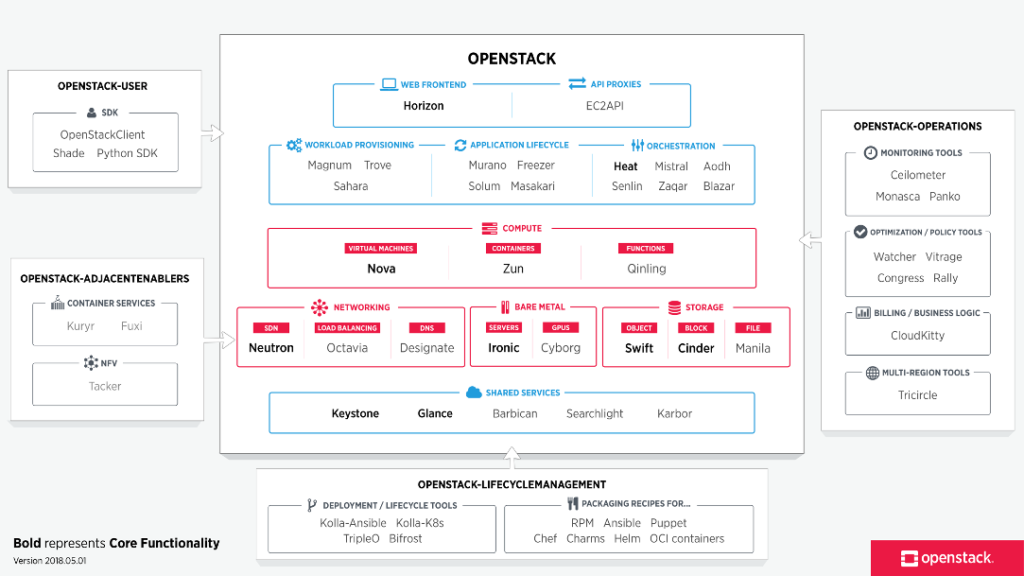What is OpenStack? OpenStack is a cloud computing platform that allows users to effectively plug and play components to build it to fit their uses. Primarily it is used in Infrastructure as a Service (IaaS).
OpenStack is completely open source meaning that it is free to use, and may be redistributed or modified. Using pools of virtual resources for compute, networking, storage, and image services, it offers a completely scalable solution to fit every cloud hosting need.
What are OpenStack Services?
OpenStack is built from microservices which can be changed based on the need of the software. Services communicate with each other and are responsible for various functions within the OpenStack environment.
These microservices can do anything from the actual compute services, like Nova, to object storage, like Swift, to many others.

Compute
- Nova; Compute service
- Zun; Containers service
- Qinling; Functions service
Hardware Lifecycle
- Ironic; Bare metal provisioning service
- Cyborg; Lifecycle management of accelerators
Storage
- Swift; Object storage
- Cinder; Block storage
- Manila; Shared filesystems
Networking
- Octavia; Networking
- Designate; Load balancer
- Neutron; DNS service
Shared Services
- Keystone; Identity service
- Placement; Placement service
- Glance; Image Service
- Barbican; Key management
- Karbor; Application Data Protection as a Service
- Searchlight; Indexing and Search
Orchestration
- Heat; Orchestration
- Senlin; Clustering service
- Minstral; Workflow service
- Zaqar; Messaging Service
- Blazar; Resource Reservation Service
- AODH; Alarming service
Workload Provisioning
- Magnum; Container Orchestration Engine Provisioning
- Sahara; Big Data Processing Framework Provisioning
- Trove; Database as a Service (DaaS)
Application Lifecycle
- Masakari; High-Availability(HA) service
- Murano; Application Catalog
- Solum; Development Lifecycle Automation
- Freezer; Disaster Recovery/Backups
API Proxies
- EC2API; EC2 API Proxy
Web Frontend
- Horizon; GUI Dashboard



































